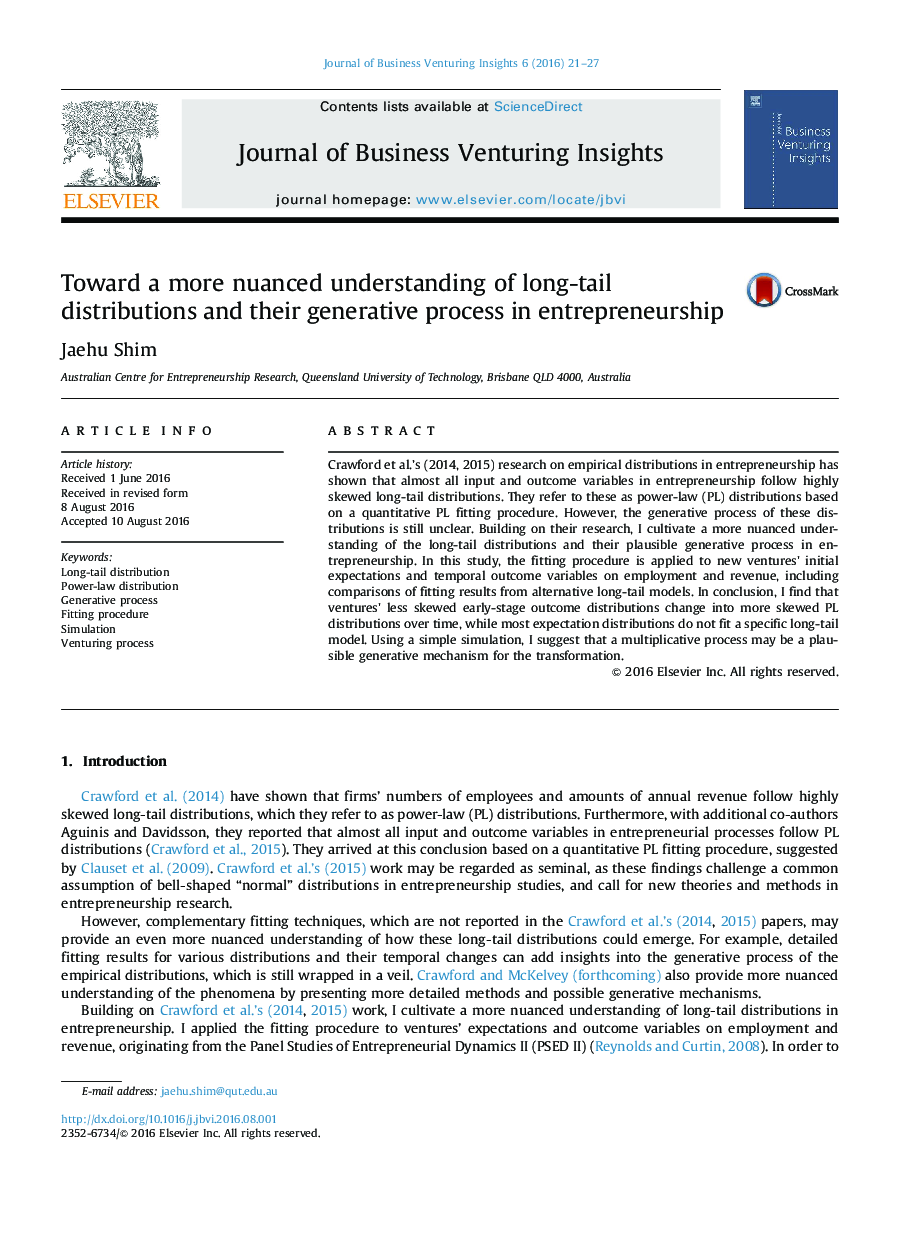| Article ID | Journal | Published Year | Pages | File Type |
|---|---|---|---|---|
| 7426096 | Journal of Business Venturing Insights | 2016 | 7 Pages |
Abstract
Crawford et al.'s (2014, 2015) research on empirical distributions in entrepreneurship has shown that almost all input and outcome variables in entrepreneurship follow highly skewed long-tail distributions. They refer to these as power-law (PL) distributions based on a quantitative PL fitting procedure. However, the generative process of these distributions is still unclear. Building on their research, I cultivate a more nuanced understanding of the long-tail distributions and their plausible generative process in entrepreneurship. In this study, the fitting procedure is applied to new ventures' initial expectations and temporal outcome variables on employment and revenue, including comparisons of fitting results from alternative long-tail models. In conclusion, I find that ventures' less skewed early-stage outcome distributions change into more skewed PL distributions over time, while most expectation distributions do not fit a specific long-tail model. Using a simple simulation, I suggest that a multiplicative process may be a plausible generative mechanism for the transformation.
Related Topics
Social Sciences and Humanities
Business, Management and Accounting
Business and International Management
Authors
Jaehu Shim,
